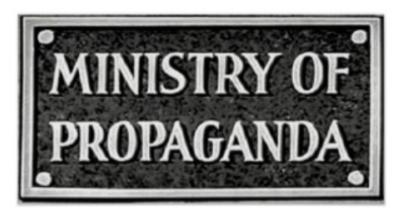We are repeatedly told Biden is compelled, against his will, to support regimes engaging in ethnic cleansing, bombing civilians, and dictatorship.
There’s a subtle but deeply ideological media trope that asserts, with no evidence or explanation, that supporting despotic, human rights-abusing countries—an ongoing and decades-long tradition—is something the US, the most powerful country in the history of earth, is reluctantly “forced” to do. Take as a recent example an ostensibly straight New York Times report by Peter Baker and Mujib Mashal explaining why the US just rolled out the red carpet for Indian Prime Minister Narendra Modi last month, “despite” India’s increasingly grim human rights record.
It’s simply taken for granted that US officials’ default position is identical to that of a scrappy, well-meaning humanitarian organization, unless circumstances “force” them to take a different position.
The headline alone is a masterclass in obfuscation: “In Hosting Modi, Biden Pushes Democracy Concerns to the Background.” The term “Democracy Concerns” is not put in scare quotes or otherwise presented as something that ought to invite skepticism, a self-serving claim of internal motive made by the White House that the reader should perhaps take with a grain of salt. The Times simply states as an agreed-upon fact that President Joe Biden, along with the broader US diplomatic apparatus, have genuinely felt “democracy concerns.” No other major global power enjoys the taken-for-granted presumption of its perpetual, axiomatic concern for democracy—it’s a moral tiara only placed upon the head of The New York Times’ home country.
After much hand-wringing about Modi’s well-documented illiberal policies, the Times breathes a sigh, then asserts—again, without any skepticism or evidence—that the US sincerely cares about “human rights” but simply Has No Choice but to look the other way in this instance:
Mr. Biden has concluded, much as his predecessors did, that he needs India despite concerns over human rights just as he believes he needs Saudi Arabia, the Philippines and other countries that are either outright autocracies or do not fit into the category of ideal democracies. At a time of confrontation with Russia and an uneasy standoff with China, Mr. Biden is being forced to accept the flaws of America’s friends.
That the US would back a country because it is autocratic, as opposed to backing a country despite this fact, never crosses Baker and Mashal’s minds. It’s simply taken for granted that US officials’ default position is identical to that of a scrappy, well-meaning humanitarian organization, unless circumstances “force” them to take a different position.
For being such a noble empire, the US is “forced” into such moral compromises quite frequently. Last summer, for instance, when Biden rolled out the red carpet for Saudi dictator and journalist-slayer Mohammed bin Salman Al Saud, we were told repeatedly that he was, again, “forced” into doing so (emphases mine):
Forced by whom, exactly? Where is that outside force coming from? A morally sensible person would understand that if “democracy concerns” are so quickly jettisoned when they become modestly inconvenient, then they are, indeed, not real concerns, much less principles in any meaningful sense. They are self-aggrandizing marketing fluff. No one on the media or politics side is actually having a serious conversation about the principle of defending human rights around the world—only a child would believe this. The point is the theater of acting like one is Very Concerned With Human Rights because it’s good for branding, both internal and external.
Those managing US empire need a story to tell themselves. The 2.86 million people who work at the Pentagon, the 45,000 who work for the State Department, the 22,000 who work for the CIA—all of them need to go home every night and generally feel good about what they do. They cannot function in their professional capacity—indeed, no one can—without a broad belief that the work they do is done for the benefit of humanity. The same is true of their counterparts in countries like Russia, Iran, and China. The same is true of the 72,000 employees of Exxon who need to believe what they do is good, and that they are indeed a part of the climate change “solution.” In the worlds of war and work, hardly anyone wakes up feeling like they’re the bad guy.
It makes sense that these bureaucratic systems—as well as the domestic populations in whose name they act—would develop their own sophistic moral ecosystems to rationalize the otherwise banal, cruel, might-makes-right exercise of power. What doesn’t make sense, though, is why any ostensibly “objective” news organization would unquestioningly accept the transparent PR framework of the morally upstanding superpower begrudgingly forced to compromise when reporting on the realities of global politics. Imagine reading a headline like “Despite Concerns over Greenhouse Emissions, Exxon Forced to Extract More Oil”—any reporter who put their name on an article like that would justifiably be ridiculed. But when it comes to “reporting” on the machinations of US power, this brand of institutional credulity is the norm, giving the average reader the clear impression, over and over and over again, that US policy makers are actually motivated by a genuine concern for democracy and human rights.
In the worlds of war and work, hardly anyone wakes up feeling like they’re the bad guy.
The US has a long, detailed history of carrying out human rights abuses itself—as well as arming, supporting, and funding others who do the same—up to and including the present day. To achieve the goal of shutting down an anti-colonial rebellion in the Philippines from 1899 to 1902, the US burned down entire villages. The US supported Indonesia’s Suharto government in the mid-1960s as that same government mass-killed up to 1 million people suspected of being communists. The US killed an estimated 10% of North Korea’s population during the Korean War from 1950 to 1953. The US invasion of Iraq killed as many as 1 million Iraqis, according to one estimate. Post-9/11 US wars have caused the deaths of an estimated 4.5 million people, according to a recent Brown University study. US sanctions on Venezuela were responsible for the deaths of an estimated 40,000 Venezuelans from 2017 to 2018, one analysis found. The US-backed Saudi War in Yemen has killed over 11,000 children directly since 2015—and another 85,000 have died from starvation as a result of the war—with the vast majority of those deaths resulting from US-supplied Saudi bombs. The US has been the primary backer, arms supplier, and funder of Israeli occupation and the arbitrary killing and maiming of Palestinians for over 70 years; it is also the most vocal and unwavering defender of a racist system that Human Rights Watch and virtually every other major human rights organization calls an “apartheid regime.” Less than two weeks after Modi’s visit CNN reported President Biden planned on appointing documented war criminal Elliott Abrams to United States Advisory Commission on Public Diplomacy.
Was the US “forced” into taking all of these anti-democratic, anti-human-rights actions? If so, what mysterious geopolitical dark matter has been compelling US policy makers, against their will, to abandon their ostensible commitment to democracy and human rights for all these decades? If they weren’t “forced” in 1963, 1973, 1983, 1993, 2003, 2013, then what makes us think they are being “forced” in 2023? What existentially changed about US foreign policy that would make the situation today—where certain “political realities” are “forcing” a reluctant US to ignore human rights abuses—an outlier in US empire’s consistent, historically contiguous track record of disregarding human rights?
If handwaving about “realities” and “practical considerations” in a “messy world” is enough to justify brute realpolitik when it comes to US relations with countries like Saudi Arabia, then why isn’t this also the case for Russia and China? Couldn’t one argue that all of their human rights abuses are the result of certain “realities” compelling them to do evil things? No, of course not. When Official Enemy States commit similar human rights violations or go to war, we are told by US media, it’s due to deliberate, long-term plots of global conquest, clear moral choices, and cynical might-makes-right exercises of power.
A thorough review of The New York Times’ archive produces no example of reporters framing Chinese, Russian, or Iranian human rights abuses as something these regimes were “forced” to do. It is simply taken for granted they do such things of their own perverse volition, as purely cynical exercises in arbitrary power grabs. There is no reluctance, no heavy sighs beforehand, no mysterious “political reality” or “realpolitik” “forcing” them to do The Bad Thing. They simply do it because they are axiomatically evil.
A thorough review of The New York Times’ archive produces no example of reporters framing Chinese, Russian, or Iranian human rights abuses as something these regimes were “forced” to do. It is simply taken for granted they do such things of their own perverse volition.
But this feigned naivete about the good intentions of American empire serves a very specific purpose. When the press is compelled to report about the US embracing a repressive regime but still needs to maintain the moral fiction of the US as the rightful arbiter of global democracy and human rights, the only propaganda move is to acknowledge both but insist the latter isn’t undermined by the former because the US Simply Has No Choice. (It’s somewhat difficult, after all, to simply ignore either Modi’s visit or his numerous human rights, anti-democratic abuses.) What other play is there? It’s a popular trope because it’s the only way one can report on these two, obviously contradictory, realities, which—given the range of autocratic US allies, from Uzbekistan to Jordan, to the UAE, to Turkey, to Egypt, to Israel, from Azerbaijan to Saudi Arabia to Tajikistan, to Djibouti, to Kazakhstan—it is compelled to do frequently. Cognitive dissonance requires these two antithetical news items are reconciled, and the only way to do that is to have the high clergy of America’s civic religion of The Rules-Based Liberal Order™ intervene, as the Times’ Baker reliably does, and explain how outside forces compel the US to “push Democracy Concerns to the background.”
It’s not a new framing, of course. In the previous Democratic administration, Barack Obama was “forced” to increase troop levels in Afghanistan. “Erstwhile human-rights icon” Samantha Power was “forced” to support Saudi Arabia’s destruction of Yemen. Our do-good American liberal leaders are constantly and reluctantly forced to defend—and carry out themselves—human rights abuses quite often.
What’s important to emphasize is that accepting and running with this premise—that the US only engages in human rights abuses, or allies with human rights abusers, With A Heavy Heart when It Has No Choice—is pure, unchecked dogma. It’s just a baseless assertion, a totally made-up ideological thingamajig for which we have no historical evidence. Baker, somewhat infamously, has made public statements that he has zero personal politics of his own, telling the Times in 2020 that he, like the great King Solomon, is without prejudice:
“As reporters, our job is to observe, not participate, and so to that end, I don’t belong to any political party, I don’t belong to any non-journalism organization, I don’t support any candidate, I don’t give money to interest groups and I don’t vote. I try hard not to take strong positions on public issues even in private, much to the frustration of friends and family. For me, it’s easier to stay out of the fray if I never make up my mind, even in the privacy of the kitchen or the voting booth, that one candidate is better than another, that one side is right and the other wrong.”
But Baker is very much taking a position on a public issue. Just as he did when lobbying against the US withdrawal from Afghanistan by interviewing, without disclosure, a Raytheon board member, Baker is dutifully holding up the entire moral pretext for the US’s expansive military footprint. By accepting the highly contestable premise that the US only undermines its “democracy agenda” when it’s “forced” to do so, by not putting “democracy concerns” in scare quotes, by not even questioning at all the nominal motives of US foreign policy, he is carrying dumpster truckloads of ideology in his reporting. This double standard—of accepting noble motivations on the part of the US, and simply assuming craven calculation on the part of Enemy States—is so ubiquitous, one hardly notices it. Like a fish in water, the average media consumer swims in the ideology of American exceptionalism and saccharine do-gooderism. That this childlike view of US motives has zero historical basis doesn’t seem to matter much at all.








